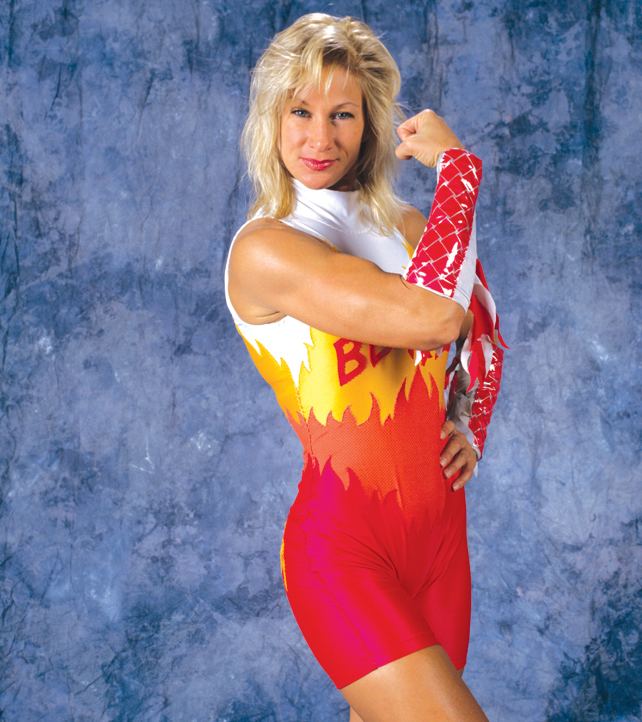
Trashing the Competition (WCW, December 18, 1995)
Right from the start of the Monday Night War – which began on September 4, 1995 with the debut of Nitro – Eric Bischoff made his intentions felt. He knew he had to be aggressive in order to compete with the well established WWF and their flagship programme, Monday Night Raw.
If Lex Luger’s unexpected return to the company on the first Nitro was an opening shot, than what occurred on December 18 was the sequel of a one-two punch from WCW to Vince McMahon.
Madusa Miceli had made a name for herself as a prolific female wrestler and valet in the AWA, as well as in Japan for AJW. She signed with WCW in the early nineties as part of The Dangerous Alliance, primarily managing Rick Rude. In 1993, with the WWF looking to revive their Women’s division, she was brought in as Alundra Blayze, and became their first Women’s champion under the banner of the resurrected division.
She was able to get McMahon to sign Japanese talent for her to work with, the most notable being Bull Nakano. However, by the end of 1995, the WWF lost interest again and she was released. Unfortunately, they failed to procure the WWF Women’s Title belt from her, and Bischoff took full advantage.
Signing back with WCW in December of 1995, she mentioned to Bischoff she was still in possession of the Women’s Title; should she send it back to them? ‘Oh no no no, don’t do that, bring it to TV,’ was Eric’s response.
Much like the return of Luger, fans were unaware of her return to WCW, and it took place as the cameras were on the three-man commentary team of Bischoff, Mongo and The Brain. She walked onto the set and demanded a microphone. She stated that she had previously been in the WWF as Alundra Blayze, but her name was Madusa, and it always would be Madusa.
But the high crescendo of this promo was when she revealed she was still in possession of the WWF Women’s Title. Taking a nearby wastepaper bin, she then dropped the belt into it with the parting words, “and that’s what I think of the WWF Women’s championship.”
Much like the WWF, WCW showed a renewed interest in women’s wrestling and brought in a number of stars from Japan, such as Akira Hokuto. But again, the same with the WWF, WCW lost interest and the division dwindled. Fortunately for Madusa – who not surprisingly was blacklisted from New York – the company did show loyalty to her and she remained almost until the end.
For what it’s worth, she said years later she regretted the decision and was torn about doing it in the first place. It wasn’t until 2015 that the blacklisting was rescinded, when she was inducted into the WWE Hall of Fame. On this occasion, she strongly put over the title, stating that after twenty years it was ‘finally back where it belonged.’
While it was perhaps not on the same level as when Ric Flair turned up in the WWF with the WCW World Heavyweight Title, it was still a highly controversial and memorable moment in the history of the Monday Night War.
